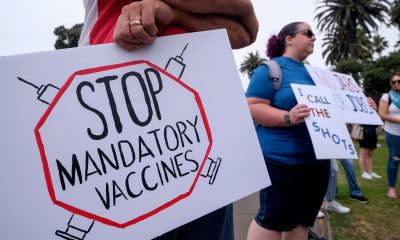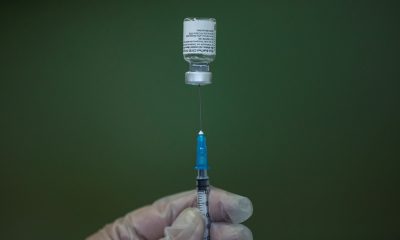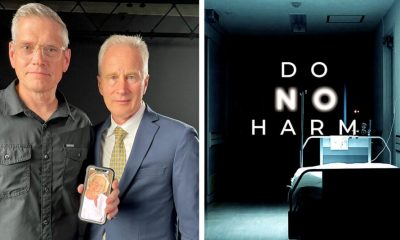Oncologists are reporting an alarming rise in post-jab “turbo cancers,” a term coined to describe incredibly rapid-growing cancers in people who have received one or more COVID-19 jabs.
Turbo cancers are showing up in young people, many under the age of 30, with no family history of cancer. They’re also showing up in pregnant women and young children.
In a Sept. 22, Canadian oncologist and cancer researcher Dr. William Makis discussed the alarming rise in post-jab “turbo cancers,” a term coined to describe incredibly rapid-growing cancers in people who have received one or more COVID-19 jabs.
One example of this is detailed in a September case report co-written by Dr. Peter McCullough. It describes the rapid deterioration of a 56-year-old man who within days of his COVID-19 shot developed Bell’s palsy, which progressed into an aggressive tumor on his ear and face.
“The malignancy was of cutaneous origin and the case showed symptoms consistent with Bell’s palsy and trigeminal neuralgia beginning four days post-vaccination … In this study we describe all aspects of this case and discuss possible causal links between the rapid emergence of this metastatic cancer and mRNA vaccination.
READ ALSO: COVID-19’s origin remains biggest cover-up in medical history—analyst
“We place this within the context of multiple immune impairments potentially related to the mRNA injections that would be expected to potentiate more aggressive presentation and progression of cancer.
“The type of malignancy we describe suggests a population risk for occurrence of a large variety of relatively common basaloid phenotype cancer cells, which may have the potential for metastatic disease. This can be avoidable with early diagnosis and adequate treatment.
“Since facial paralysis/pain is one of the more common adverse neurological events following mRNA injection, careful inspection of cutaneous/soft tissue should be conducted to rule out malignancy.
“An extensive literature review is carried out, in order to elucidate the toxicity of mRNA vaccination that may have led to the death of this patient. Preventive and precise routine clinical investigations can potentially avoid future mortalities.”
Another case report, published in November 2021, described the remarkably rapid progression of angioimmunoblastic T cell lymphoma in a 66-year-old man, mere days after he got his third Pfizer shot.
Ironically, he got the shot to protect him during chemotherapy, and in eight days, the cancer just exploded and spread like wildfire. According to Makis, that kind of progression would normally take a couple of years, or at most a few months.
READ ALSO: Why I would not recommend new COVID vaccine to humans—expert
Makis points out that when you look at GoFundMe pages asking for donations for cancer treatment, a large portion of these people are in professions that were mandated to take the shots, such as medical professionals and school teachers, police officers, firefighters, military personnel and airline crews.
When asked how the COVID-19 shots might be causing these turbo cancers, Makis describes several possible mechanisms that can lead to cancer in susceptible individuals. The primary one is the modification of the mRNA used.
When substituting parts of the code in this way, the resulting protein can easily get misfolded, and this has been linked to a variety of chronic diseases, including Alzheimer’s, Parkinson’s disease and heart failure.
As explained by Makis, the pseudouridine insertion can also suppress your innate immune surveillance by dampening the activity of toll-like receptors, and one downstream effect of that is reduced cancer surveillance. “The more mRNA shots you take, the greater the immune system damage, the greater your risk of impaired cancer surveillance and hence, the greater your risk of turbo cancer.”
Cancer deaths are also likely to continue going up because if we don’t know the exact mechanism behind them, we cannot treat them, Makis notes and both chemo and radiation are proving useless. They don’t work against these rapid-onset cancers.

 Health6 days ago
Health6 days ago
 Entertainment1 week ago
Entertainment1 week ago
 Crime6 days ago
Crime6 days ago
 Education1 week ago
Education1 week ago
 Health1 week ago
Health1 week ago
 Comments and Issues7 days ago
Comments and Issues7 days ago
 Football1 week ago
Football1 week ago
 Latest6 days ago
Latest6 days ago











